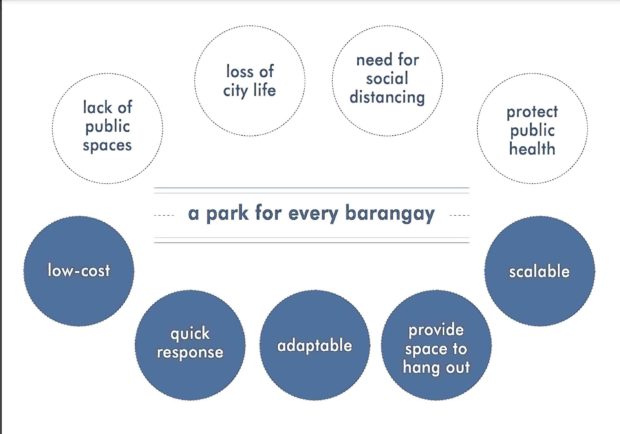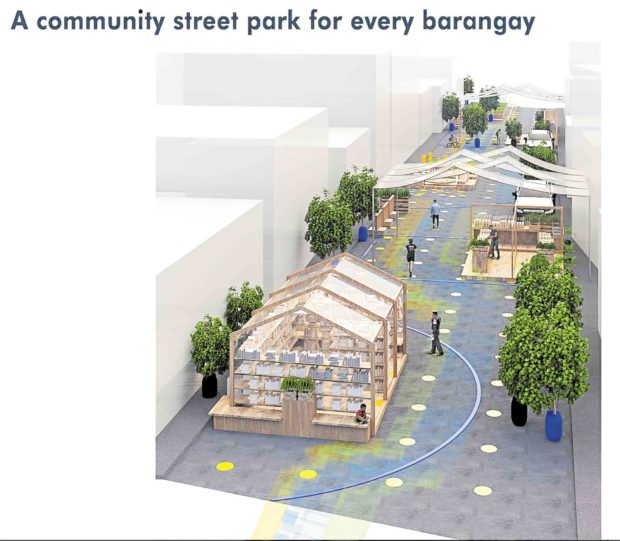
Exactly a year ago from today, we brought together a special group of people to help augment the capacity of our hospitals by building emergency quarantine facilities. This program was spearheaded by myself, Dr. Glenn Angeles and Maj. Carmelo Jaluague. We felt that the best way for us to help fight the pandemic was by making sure that the hospitals had enough room for everyone who needed it.
Our idea to build a few prototypes quickly evaporated as the events overtook us and we ended up building 75 facilities all over Mega Manila. We needed so many people to help build, organize and raise funds for this endeavor: Gen. Wilhelm Ilagan, Prim Paypon, Jason Ang, Dan Quiaoit, Banjo Badayos, Arvin Pangilinan, Jeffrey Cheah, Rebecca Plaza, Rommel Laquian, Denise De Castro, Danny Ko, Gene Go, Pauline Morales, Luca Arcari, Felipe Agustin, Eric Salanguit, Eric Tan, Kryzta Castillo, Arianna Rodriguez, Justin Wee Eng, Alyana Acacio, Benjee Mendoza, An Bermejo, Jason and Nikki Buensalido, Sonny Sunga, Arthur Austria, and over 400 other architects, soldiers, builders and vendors who came together to make the facilities happen. Through it all, we always thought to ourselves, if it takes an entire village, then let us begin by working together as a village, and together, we build as one.
Today, after more than a year in this pandemic, we are facing anew an unprecedented surge in cases and our city is once more locked down.
Movement is restricted and communities are isolated and fearful. I find myself so saddened and constantly asking myself what more can we do? How can we help mitigate the spread of this pandemic as we patiently wait for the respite that widespread vaccination will provide?
Much has been said about this pandemic being a great equalizer, and much has been said about asking or even demanding everyone to stay home and keep safe. Yet not everyone in our community has the financial or even spatial resources to do so. This pandemic respects no borders or boundaries, we cannot stop it without looking out for our most vulnerable communities.
The most vulnerable communities are those where people are packed into the smallest and harshest living conditions. They are the communities where people cannot just stay home simply because there is no room for them. They are the communities where people need more spaces and amenities to be made available and within reach. You cannot ask a drowning man why he did not learn how to swim, nor can you ask him to stop holding on to your boat. You throw him a lifeline or jump in to save him.
Community street parks
We are proposing the development of community street parks not just for our affluent neighborhoods, but for those who need it more. We seek to reclaim the streets for the people and help build stronger community bubbles by passively minimizing unnecessary travel and commute.
What does a community street park do? These parks provide immediately accessible open space. It increases the space available to people from sidewalks to whole streets. It provides the leisure spaces that they would travel to in their immediate vicinity. It passively lessens commute, mass gathering and alleviates intimate crowding. It is a hyperlocal passive solution to cross pollination between communities.
What is inside a community street park? Entertainment, playgrounds, trade, workshop, food and space to alleviate our vulnerable communities. The parks will provide entertainment with free internet and movies and free books from a library. It will provide non-tactile playgrounds for kids. There will be a trade hall for local vendors and a workshop to provide tools and teach crafts to augment incomes. It will provide garden patches to augment food supply. Most importantly, it will provide shaded open air seating space for people who need them.
Where can we put a community street park? We need these parks in tightly packed streets where informal settlements and low rise community housing cannot provide adequate space. Areas like Tondo in Manila or Pinyahan in Quezon City are prime candidates for a better urban environment.
Make better communities

We need to galvanize and empower the private sector to help our communities. We need leadership that provides achievable goals and allows for stronger collaboration with the people on the streets. We need better information and feasible solutions to the crowding we find in our cities.
Where do we go from here? We stay home, we stay safe. We make our homes and our communities better.
Article and Photo originally posted by Inquirer last March 28, 2021 3:17pm and written by Ar. William Ti Jr.








More Stories
Vista Land Celebrates 50 Years with Sandiwa: An Event Honoring Leadership, Legacy, and the Filipino Dream of Homeownership
Vista Land Celebrates Love Month in Ilocos Region
Vista Land Bridges Cebuano Heritage and Progress with Valencia by Vista Estates